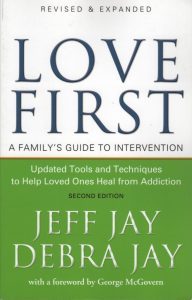The Silent Treatment
A letter from one of our readers…
A letter from one of our readers…
Dear Jeff and Debra,
My little brother is successful in business, but his life is being ruined by alcohol. He’s already lost his marriage because of his drinking and verbal abuse, but he’s still playing a blame game.
Some of his friends and I tried to talk to him about his drinking, but he wouldn’t listen. Some people say I should cut him out of my life until he accepts help. Should I stop talking to him? – Big Sister
Dear Sister,
Just the opposite. When a person doesn’t accept help for an obvious problem, it’s usually more effective to increase communication. Alcoholics usually want to isolate themselves from concerned family members and friends. They do not want to talk about their drinking. When forced to talk about it, they will reframe the issue and blame others for their dilemma.
Your informal intervention didn’t have the desired effect because it wasn’t well planned. When we do a good, structured family intervention, we spend a lot of time in training and rehearsal. There are three keys to a successful intervention: Plan, Plan, Plan. We need to use the power of love and concern in a very specific and organized way, so we can break through the natural denial and defenses of the alcoholic, and bring them to a moment of clarity where they will say Yes.
 If we can’t reach an agreement for treatment, the family members and friends should promise to continue the conversation at every opportunity. They should no longer avoid the issue. If the person we’re concerned about was avoiding treatment for any other life-threatening illness, we wouldn’t walk away. Why should we do it with addiction?
If we can’t reach an agreement for treatment, the family members and friends should promise to continue the conversation at every opportunity. They should no longer avoid the issue. If the person we’re concerned about was avoiding treatment for any other life-threatening illness, we wouldn’t walk away. Why should we do it with addiction?
Mental health and addiction problems thrive in the dark. They grow in islolation, and snowball with other negative emotions. When we continue to bring the issues into the light with care and compassion, we make it more and more difficult for the alcoholic to refuse help.
Rather than give your brother the silent treatment, you should consider a better-planned approach and keep the conversation going. We don’t recommend nagging him, but we do recommend a family commitment to recovery.




